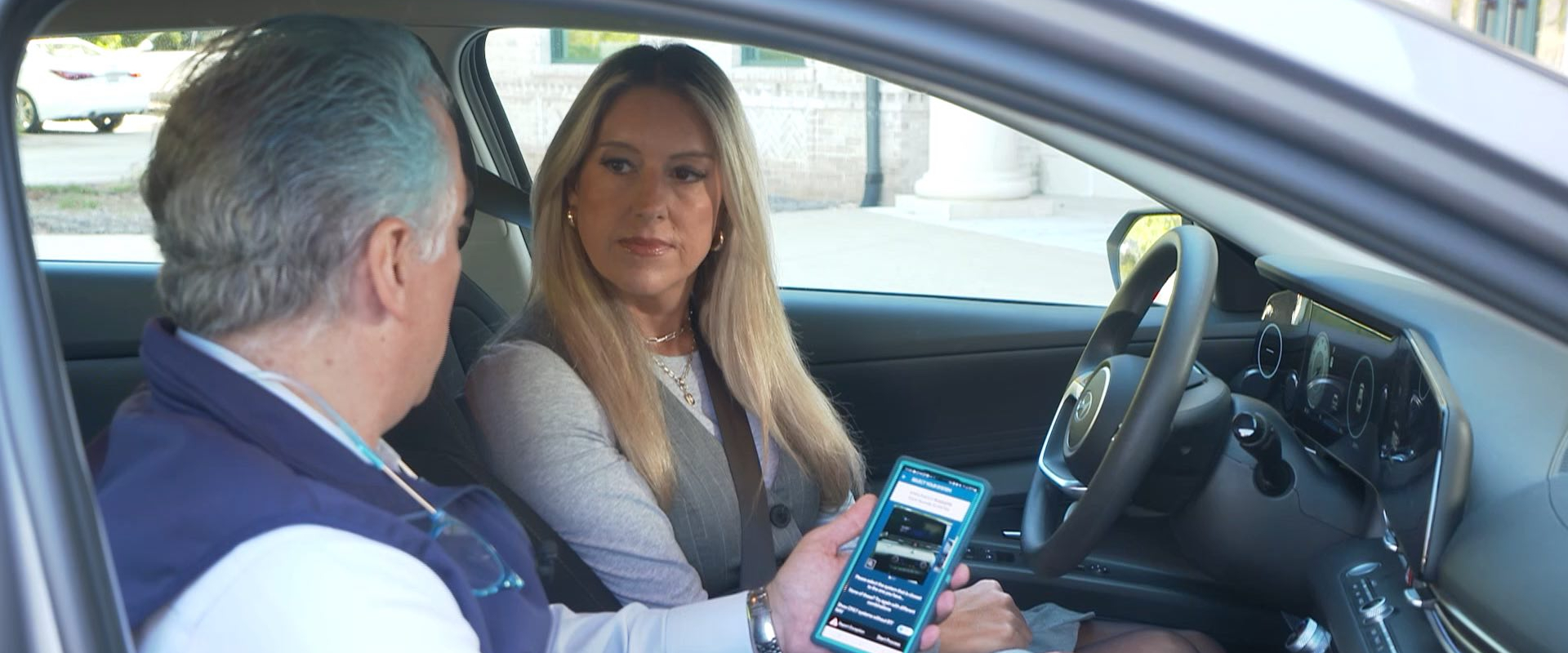Car Data Privacy Problems
When you connect your mobile phone to your car, you expect it to enhance your driving experience with apps for music, navigation and alike, not to mention make it easier and safer to stay in touch when on the road. But lately, serious questions have been raised about where your personal and often very private information goes from there. Well, a non-profit, known as Privacy4Cars, has made it its mission to identify and resolve those data privacy issues. Our FYI reporter Stephanie Hart has more.
STEPHANIE HART: Vehicles are sold, rented and shared every day, and you may not realize cars indefinitely store all of your personal information; things like your home address, and even in some cases your garage door code, call logs, full text messages, and even your contacts. Not deleting this personal, private information can have serious consequences. For instance, privacy issues usually become financial issues.
ANDREA AMICO: Some cars will collect data and then this data ends up being sold to data brokers, typically for a few cents. And then this data ends up in the hands of insurance companies and they will see how you drive, and based on that they may decide to raise your insurance rate or not insure you at all. And most consumers have no idea that this is happening in the first place.
STEPHANIE HART: Andrea Amico founded Privacy4Cars eight years ago to protect consumers. He says, at its worse, car privacy issues can also lead to violence.
ANDREA AMICO: Abusive spouses use data from cars to stalk, harass, and even physically harm their victims, and fortunately we are starting to see some states act, like California just passed a law to start to have some minimum protections. The Federal Communications Commission is looking into this issue, but a lot more progress is required.
STEPHANIE HART: Consumers may discover they can’t control if and how data from their cars will be sold or shared. That’s because too many companies only do the bare minimum under the law and several states lack privacy protections for vehicles.
ANDREA AMICO: So what people don’t realize is that when they buy their car or rent a car, as part of the agreement, not only are they writing a check but they’re also agreeing for their data to be collected and used for essentially anything.
STEPHANIE HART: That’s pretty unsettling and that’s what prompted Amico to act.
ANDREA AMICO: I used to inspect cars in my old company and I came across a lot of data of people, and I started asking people in the industry, “do you know this is happening? Where is this data going?” And nobody seemed to have any good answers so that’s when I decided to do something about it.

STEPHANIE HART: He says two critical moments are when you purchase a vehicle and when you are selling it. Here’s how you can protect yourself:
Be informed, know what your vehicle is capable of and then decide if you want to opt out of certain data collection. Delete all of your personal, private data when you sell your car. If you don’t know how to do it, there are resources out there. Here are some suggestions: Look in the vehicle’s manual, call the manufacturer for help, search online for video tutorials, download the Privacy4cars app which will walk you through the process step by step for your specific make and model. If it seems too overwhelming to do yourself then ask your dealership to delete all of your personal data when you sell your car. However, it’s smart to look over their shoulder to make sure it’s done. And it’s important to remember the same processes apply when you return a rental car.
ANDREA AMICO: Our mission is driving privacy which is a little bit tongue and cheek, but the idea is if you buy your car you should be in control of your data. You should decide where it goes, how it’s used and to make sure that the data is protected throughout the lifecycle of the car.
STEPHANIE HART: Still, when you turn in that key fob, it’s up to you to make sure your privacy doesn’t go along with it.








